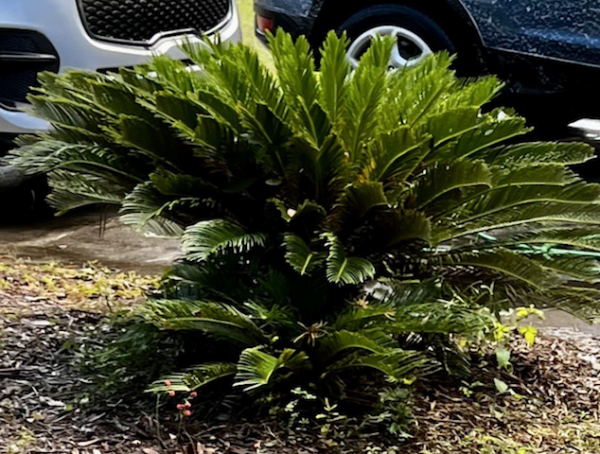A dog is recovering after he was poisoned over the weekend after ingesting part of a Sago Palm.
Magaret Pollard of Summerfield said her three-year-old dog Gotti was treated at the University of Florida Veterinary Hospital in Ocala after ingesting material from a Sago Palm. Pollard said she is grateful for the emergency care received at the facility as well as the initial diagnosis and referral at the Mulberry Grove Animal Hospital in The Villages. Pollard lives across from Mulberry Grove Plaza.

The good news is that Gotti is stable and appears to be on the road to recovery, in large part because of Pollard’s quick action in seeking medical care.
Pollard wants to warn other dog owners from allowing their pets to face a similar fate.
“According to the animal hospitals this is the time of the year cases are at the all time high as the seeds of the plant are most toxic. However, the whole plant is toxic. Only 50 percent of the animals ingested have a survival rate if not taken to an vet for aggressive treatment within four to six hours of exposure,” Pollard said.
The ASPCA Animal Poison Control Center (APCC) receives thousands of calls every year relating to pets ingesting plants, but in recent years, there has been a massive spike in cases relating to the Sago Palm.
“With the significant increase in cases, we have seen more and more calls coming from states all over the country,” the ASPCA said.
The Sago Palm, or Cycas Revoluta, is a stocky, spike-leaved plant commonly seen in landscaping, largely in Southern states, but still seen nationwide.
The entire plant is toxic (this includes the seeds and fronds), so it’s best not to keep these around pets if possible. The ASPCA advises pet owners to call your veterinarian immediately if you suspect your pet may have ingested the plant.
Some clinical signs of Sago Palm toxicity to watch out for:
- Vomiting
- Bloody stool
- Jaundice
- Increased thirst
- Bruising
Sago Palms can also cause Hemorrhagic gastroenteritis, blood clotting disorders, liver damage or failure, and death can occur without immediate treatment.


